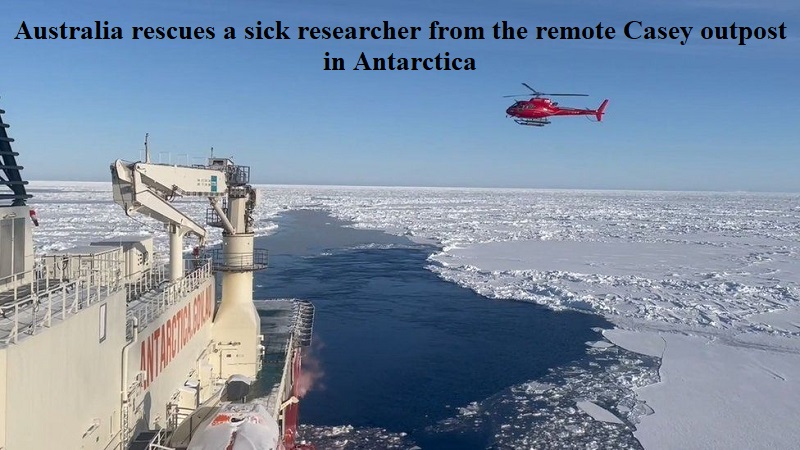
Australia successfully rescued a researcher who fell ill at the remote Casey outpost in Antarctica on Monday (September 4), according to Australian officials. The Australian Antarctic Program (AAP) had previously announced the deployment of an icebreaker to assist a researcher with a “developing medical condition.”
Providing an update on Monday, the Australian Antarctic Division (AAD) stated that the icebreaking ship RSV Nuyina had traveled over 3,000 kilometers from Hobart, Tasmania, to reach the Casey Research Station in East Antarctica, where the unnamed patient was located.
Australia had initiated an urgent rescue operation to bring back an expeditioner in need of specialist medical care in Tasmania, as announced by officials the previous week.
Robb Clifton, AAD’s acting general manager of operations and logistics, expressed that the priority was to transport the expeditioner to Tasmania for the necessary specialist medical care. He noted that the first phase of the evacuation had been safely and successfully completed, with the ship now returning to Hobart.
Clifton added that the expeditioner would be cared for in the Nuyina’s specially equipped medical facility, staffed by polar medicine doctors and Royal Hobart Hospital medical personnel.
Casey Research Station is situated on the Bailey Peninsula’s northern part on the Budd Coast, approximately 3,880 kilometers south of Perth, Australia. The harsh conditions in the region ruled out an air rescue, necessitating the long sea journey by an icebreaker.
The Nuyina sailed through the Southern Ocean’s open seas for several days, breaking through sea ice to reach the location. Two helicopters were deployed to airlift the patient back to the ship, as reported by the AAD.
Depending on weather conditions, the vessel will return from one of Australia’s three permanent stations on the Antarctic coast to Tasmania. These stations are home to only around 20 people during the harsh winter conditions.
A spokesperson for the AAP had previously emphasized that the “wellbeing of our people is our highest priority” and assured that the expeditioner’s family was being kept fully informed of the situation. Additionally, all other personnel at the stations were reported as accounted for and safe.

Post Your Comments